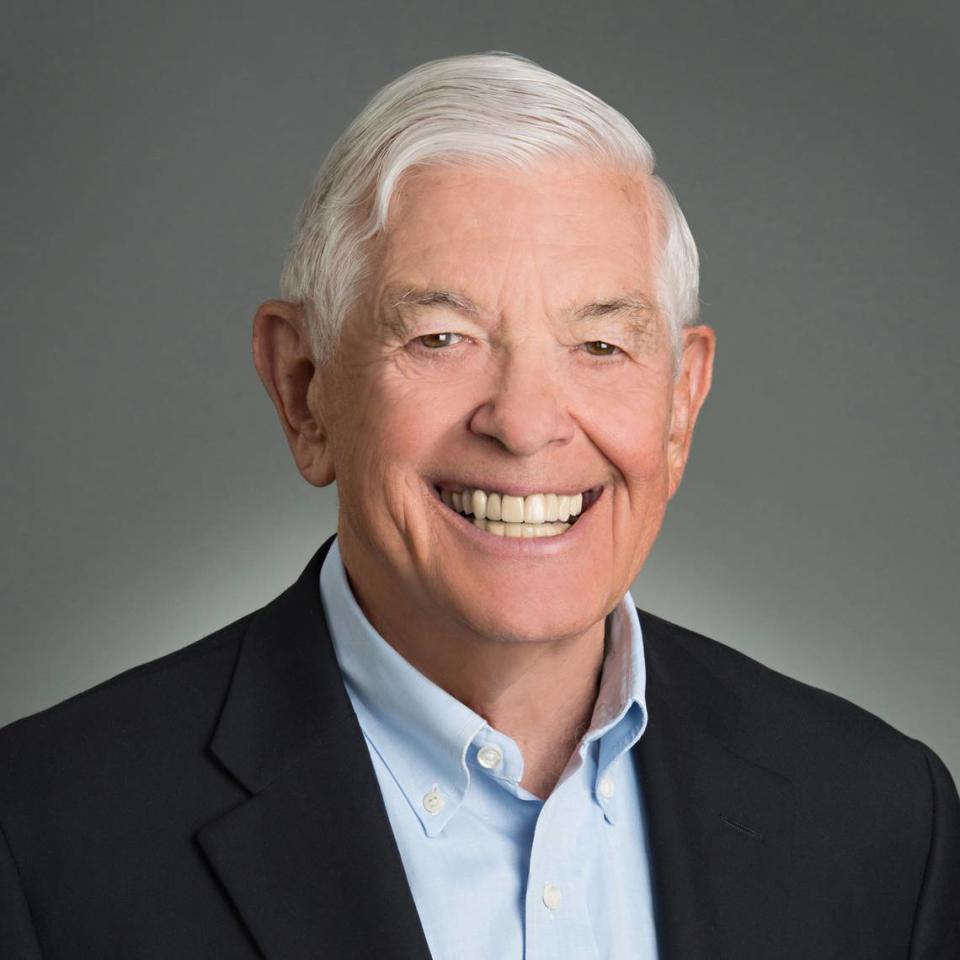Park in middle of uptown Charlotte to get major renovation, bear Hugh McColl’s name
- Oops!Something went wrong.Please try again later.
- Oops!Something went wrong.Please try again later.
The Charlotte City Council approved a proposal Monday to reinvigorate an uptown park and rename it after former Bank of America Chairman and CEO Hugh McColl Jr.
Thomas Polk Park, built in 1991 at the intersection of Trade Street and Tryon Street, “has become obsolete with limited gathering space, poor lighting, outdated landscaping and a hard-to-maintain fountain,” according to a press release from Charlotte Center City Partners.
With a fundraising goal of $10 million to pay for improvements, the Hugh McColl Park Coalition wants to “transform the city-owned park into a celebrated public space that welcomes all,” the release says.
The coalition’s proposal includes city-funded demolition of the existing park for $350,000, with Charlotte Center City Partners coordinating private donors, stakeholders and city staff on the new park’s design, The Charlotte Observer previously reported. The city will maintain the park once construction is completed. The park is around one-third of an acre.

McColl, a philanthropist who retired from the bank in 2001, has launched a few investment firms, including Bright Hope Capital, which funds Black-owned businesses, according to the release. He has also advocated for affordable housing in Charlotte, funded scholarships and has been a longtime supporter of the arts.
“It’s hard to think of anyone who has done more for this city than Hugh McColl,” Malcomb Coley, who co-chairs the group, said in the release.
“It is particularly appropriate that the park is across the street from the Bank of America Corporate Center where Mr. McColl not only transformed the banking industry but also jumpstarted the revitalization of Uptown that continues today.”
Thomas Polk was an 18th century surveyor who built his home where two Indian trading paths met, according to the Charlotte Mecklenburg Library. His homesite would later become known as “The Square,” where the Trade and Tryon Street intersect.
Polk also became the commander of a militia in the 1770s and was one of 27 of men who signed the Mecklenburg Declaration of Independence and the Mecklenburg Resolves, which proclaimed the county’s freedom from Britain, according to the Charlotte Mecklenburg Library.

